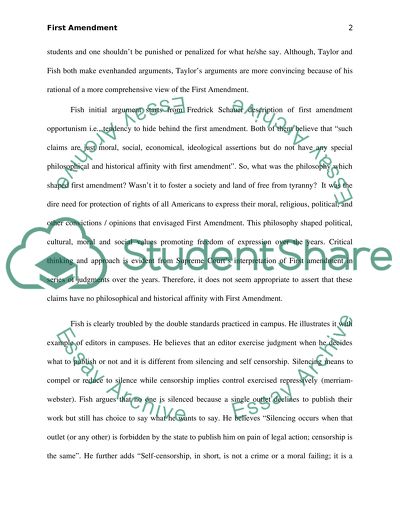Cite this document
(“First Amendment Essay Example | Topics and Well Written Essays - 1250 words”, n.d.)
First Amendment Essay Example | Topics and Well Written Essays - 1250 words. Retrieved from https://studentshare.org/law/1433674-first-amendment
First Amendment Essay Example | Topics and Well Written Essays - 1250 words. Retrieved from https://studentshare.org/law/1433674-first-amendment
(First Amendment Essay Example | Topics and Well Written Essays - 1250 Words)
First Amendment Essay Example | Topics and Well Written Essays - 1250 Words. https://studentshare.org/law/1433674-first-amendment.
First Amendment Essay Example | Topics and Well Written Essays - 1250 Words. https://studentshare.org/law/1433674-first-amendment.
“First Amendment Essay Example | Topics and Well Written Essays - 1250 Words”, n.d. https://studentshare.org/law/1433674-first-amendment.


